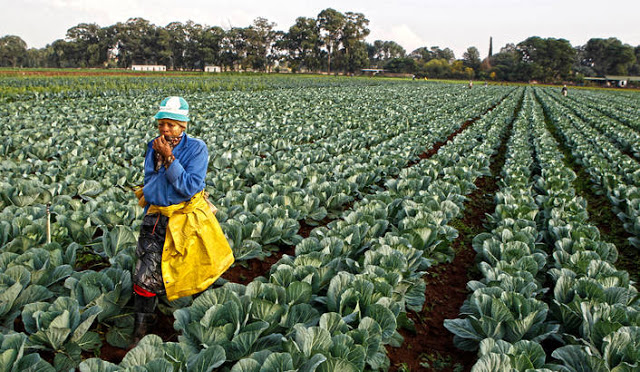By Moses Uwagbale
All Farmers Association of Nigeria (AFAN) has appealed to the Federal Government to strengthen the National Agricultural Insurance Corporation (NAIC) to be able to compensate more farmers whose farmlands were destroyed by flood.
The Chairman of AFAN, Lagos State Chapter, Dr Femi Oke , was reacting to the Seasonal Rainfall Prediction for 2020 and the Annual Flood Outlook forecasts on flood situations and looming food scarcity that it portends for different parts of the country.
Oke said NAIC was set up by the Federal Government to provide insurance cover for farmers due to the unwillingness of conventional insurers to accept agricultural risks.
He said that many farmers had lost their money and life investments to flooding that affected their farmlands and needed quick compensation.
He said that many had been discouraged from going back to their farms due to lack of compensation and interventions from government.
He appealed to government to act fast in order not to further discourage many more small holder farmers from going into agriculture as flood threatens more farmlands in the country.
According to him, we have observed that this year’s rain is going to be very much more than that of the previous year; that is why we are experiencing flood in Kebbi, Bauchi, Jigawa and Nasarawa states.
“Whenever we farmers encounter problems such as: flooding, fire, disease or pest outbreak on our farmlands, we usually don’t get compensation.
“When such incident happens , it does not encourage us to return to the farm. So, NAIC should be strengthened to oversee issues caused by natural disasters and compensate us adequately,” he said.
Oke also urged state governments to encourage and assist their farmers to practise irrigation systems on their farmlands, adding that farmers alone cannot shoulder the burden.
He added that government should also construct drainage systems and road channels around farm settlements to create water channels that can prevent flooding.
“Also, irrigation should be introduced in places where we identified that are prone to flooding.
“Both the Federal Government and governments of the affected states should work together by channelling or constructing drains and roads in order create water channel whenever it rains.
“If we fail to do this, water will definitely find its level and that is why many farmlands are flooded,” he said.
Oke said that it was really difficult for individuals or small scale farmers to tackle flooding without government support, noting that all hands must be on deck to prevent food scarcity as a result of flooding.
According to him, small holder farmers are the ones producing food for the Nigerian market, so government should support and motivate them .
“Government also needs to make at least one bulldozer available in every local government area across the country to enable farmers access them to cultivate their farmlands,” he said.
The Annual Flood Outlook forecasts that 102 local government areas in 28 states will have heavy rainfall while 275 local government areas in the 36 states of the federation including the Federal Capital Territory will experience moderate flooding.
The states are: Borno, Yobe, Gombe, Adamawa, Taraba, Bauchi, Plateau, Nasarawa, Benue, Niger, Kogi, Enugu, Anambra, Imo, Abia, Rivers and Akwa Ibom.
Others include: Delta, Edo, Ekiti, Osun, Kwara, Zamfara, Sokoto, Lagos, Ondo, Bayelsa, Kaduna, Oyo, Ogun and Abia will be affected.
Also, the forecast says that: Kano, Kebbi and the FCT will experience heavy rainfall that may lead to possible flooding and the destruction of farmlands and properties.




